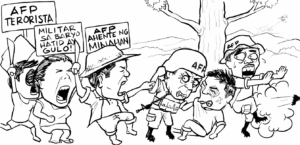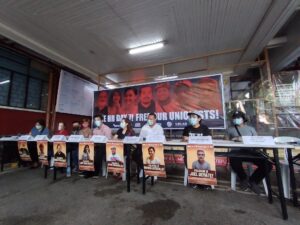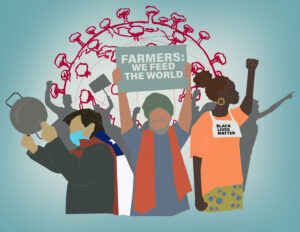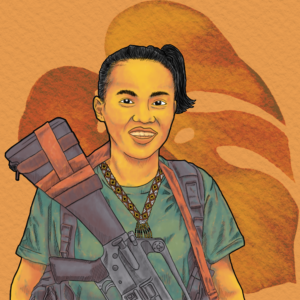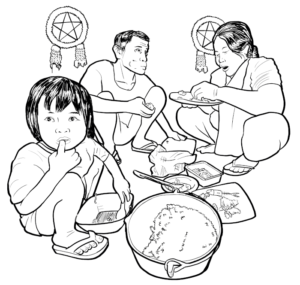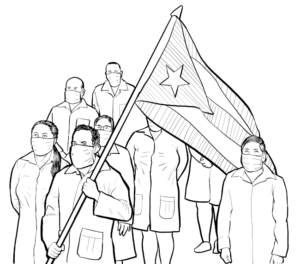Mass protests amid lockdown

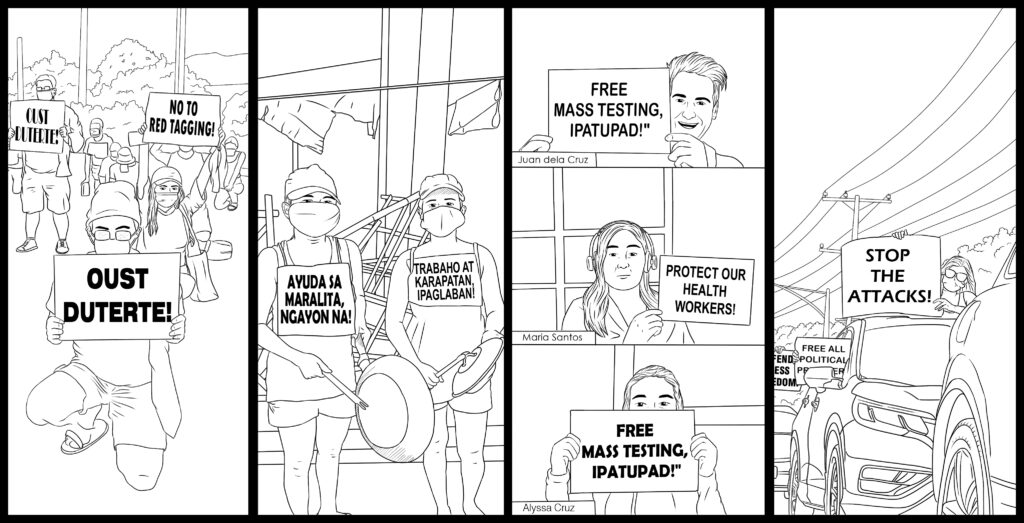
The Duterte regime exploited the Covid-19 pandemic to suppress the people’s rights to express, organize and protest. The militarist lockdown brutally implemented by the police and military fended off the outbreak of massive protests for aid, livelihood and rights. Despite this, democratic sectors were able to mount several large and small protest actions this year.
Based on initial data by Ang Bayan, there were more than 400 protest actions this 2020. Twelve of these were major mobilizations in Metro Manila. Next to the latter, the highest number of protests were launched in Southern Tagalog and Cebu. On top of rallies, activists also conducted barricades, cultural protests, collective land cultivation, pickets, caravans and camp outs.
Large and small protests
The largest protest was held on November 30 in commemoration of the Bonifacio Day. This was participated in by around 5,000 individuals to demand the junking of the regime’s Anti-Terror Law. Most protests across the country this year were directed against the said law, including small yet frequent protests in various urban centers in Luzon, Visayas and Mindanao. The youth participated in most of the protests.
There were also protests against rice importation liberalization, ABS-CBN shutdown, red-tagging, harassment and killings, demolition and land reclamation. Activists also rallied to demand protection of health workers, mass testing, emergency aid, safe reopening of schools, resumption of jeepney operations, increase in basic salary and hazard pay, and additional budget for social services. Protests were also held to condemn the killing of activists including Randall Echanis and Zara Alvarez, as well as the persecution of Reina Nasino and her infant daughter River.
At the onset of the lockdown, organizations skirted through lockdown restrictions and led various protests within houses and communities. This was participated in by around 10-20 neighboring families who held noise barrages and posted their demands in their social media accounts.
These were held in conjuction with the conduct of online protests and rallies. The biggest of which was the Labor Day protests wherein participants were seen taking part in the program to listen to speeches and press their demands. A quick picket was simultaneously held at the University of the Philippines (UP) in Diliman, Quezon City.
Outdoor protests
The first outdoor protest was held on April 1 in Barangay Bagong Pag-asa in Quezon City to condemn the absence of aid for the urban poor. The police immediately and violently dispersed the protests.
Activists were again pushed to take it to the streets on June 4 after the regime’s Anti-Terror Law hurdled through Congress. More than 1,000 converged at UP Diliman to condemn the railroading of the said law. They again assembled in the campus on June 12. In succeeding months, the university and the office of the Commission on Human Rights in the same campus served as centers of protests including several major mobilizations such as the SONA rallies. Protesters strictly observed physical distancing and wore face masks.
The transportation launched the highest number of mobilizations. Jeepney drivers and operators picketed more than ten times to demand the resumption of jeepney operations.
Proressive individuals and organizations also participated in more than five of the ABS-CBN workers’ protests in front the station in Quezon City.
The first mobilization in Mendiola, Manila was spearheaded by the LGBT groups on June 26. This was followed by protest actions by the urban poor, and rallies in commemoration of the Peasant Month and the International Human Rights Day.
During all major mobilizations, local protests were simultaneously held in the cities of Baguio, Cebu, Bacolod, Iloilo, Roxas, Davao and others. These were participated in by around 150-300 rallyists.
In sum, more than 300 activists and volunteers were arrested and temporarily detained while on their way or during rallies and relief operations for purportedly violating lockdown protocols.

